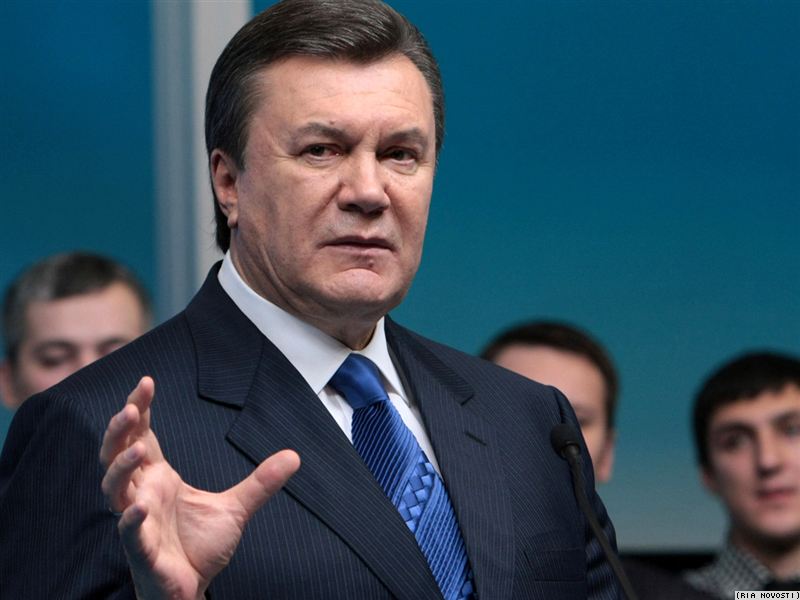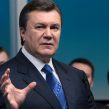
The Party of Regions Fashions Its Election Strategy
Publication: Eurasia Daily Monitor Volume: 7 Issue: 163
By:

The Party of Regions, according to an extensive analysis in Ukrayinska Pravda (August 30), is seeking to obtain a majority in local councils in the October local elections. If the Party of Regions secures a majority in the area between the Don (the Russian-Ukrainian border) and Zbruch (the former Tsarist-Austro-Hungarian border) rivers, it will control Ukraine.
This represents a battle for the hearts and minds of the swing region of central Ukraine. In the 1994 elections this region voted for Leonid Kuchma giving him a slim 52 percent victory and ten years later the region voted for Viktor Yushchenko yielding a similar victory.
That Western Ukraine has been written off as a no-win region for the Party of Regions could be seen in presidential congratulations sent to Donetsk on its annual holiday (www.president.gov.ua, August 28). Ternopil, which celebrated its 470th anniversary on the same day, was ignored (Ukrayinska Pravda, August 29). A five point strategy has been developed to win back central Ukraine; returning Ukraine to its 1994 level of nation-building. Initially, this strategy aims to undermine the largest opposition and most popular political force in central Ukraine, the Yulia Tymoshenko bloc (BYuT). BYuT has been targeted in three ways.
The first involved raids on its local headquarters by the tax police and the Ukrainian Security Service (SBU). Attempts to discredit Tymoshenko have centered upon the arrest of high profile individuals from her 2007-2010 government on charges of “corruption” or accusations of criminality against others (Ukrayinska Pravda, August 31, September 1). Finally, Tymoshenko has had her presence on television restricted while television is used to negatively portray the opposition (“Press Freedom in Ukraine: Temptation to Control,” https://en.rsf.org/IMG/pdf/_rapport_ukraine_anglais.pdf, Reporters Without Borders, September 1).
Moreover, elections have been cancelled where they are likely to produce a poor election result. In May a draft law was drawn up to end elections for the post of Kyiv mayor, who would henceforth be the same person as head of the Kyiv city state administration (a governor appointed by the president). The draft law was criticized and dropped in favor of the authorities undertaking a silent coup by removing the maverick and unpopular Mayor, Leonid Chernovetsky. Acting Mayor, Oleksandr Popov, was parachuted into the mayor’s office, where he is deputy head of the city council, and the Chernovetsky clan, widely criticized for corrupt land deals, has left the spotlight. Kyiv city council secretary, Oles Dovhiy’s office was searched by the SBU.
The Chernovetsky clan was most likely subject to a return to Kuchma’s policy of what Yale University’s Keith Darden has described as the “blackmail state.” The SBU has always collected files on corruption within Ukraine’s elites to keep them in line. If they do not heed their threats criminal charges are instituted. On August 25, the Kyiv city council voted to cancel rayon elections and therefore the Kyiv city elections in October. The Party of Regions has never been popular in the city.
In addition, the election law was changed from a full proportional to a full majority system. The proportional local election law was criticized for ignoring the fact that political parties were not well represented at local level and failing to provide local individuals to represent them. At the same time, the new law slows the development of political parties and encourages businessmen and officials to campaign as “independents” who are open to “inducements” to join Party of Regions led majorities in local councils.
Supporting satellite parties act to draw away support for opposition, these include Yushchenko’s former chief of staff Viktor Baloga’s United Center, government member Mikhail Brodsky’s Party of Free Democrats, Parliamentary Speaker Volodymyr Lytvyn’s People’s Party and the communists. Satellites have successfully recruited former NGO leaders, such as Ihor Popov, and think tank experts, such as Vadym Karasiov (both United Center) and Kost Bondarenko (Sergei Tigipko’s Strong Ukraine Party) to give them respectability and “new faces.” The Party of Regions could receive a majority in central Ukraine’s local councils by adding its votes with “independents” elected in majority seats and deputies from the Strong Ukraine Party, according to Ukrainian political expert Volodymyr Fesenko (Segodnya, September 3).
Finally, the new law on local elections was amended to permit all registered parties to campaign. This is more likely to negatively affect the opposition as it will permit Arseniy Yatseniuk’s Front for Change and other parties that have emerged from the “Orange” camp to compete for the same votes. The Party of Regions faces few threats to its dominance in the east and south.
The authorities’ strategy has a number of weaknesses. These include the poor socio-economic situation following the 50 percent increase in utility prices on August 1 mandated by the International Monetary Fund (IMF), dislike of the increased pension age from 55 to 60, growing divisions in the Party of Regions (as seen in more than one candidate for mayoral elections), low popularity of satellite parties and growing opposition from the middle class (small-medium businessmen subjected to high tax pressure), civil society and journalists.
Yanukovych campaigned on a populist pledge not to increase utility prices and in April 2010, the Black Sea Fleet base extension was promoted positively as leading to a 30 percent discounted gas price. Higher utility prices led to support for the accords declining from 59 to 47 percent.
The Party of Regions popularity has slumped from 41 percent to 28 percent and Yanukovych’s popularity has declined from 40 percent to 22 percent between May and August. Only 26 percent believe Ukraine is heading in the right direction compared to 43 percent in May, while 16 percent consider that the authorities are fulfilling their hopes (down from 25 percent). Moreover, 48 percent believe that the authorities are defending their own interests (Razumkov Center poll, www.uceps.com.ua, August 10-14).
The authorities’ main hope is that these weaknesses will be trumped by voter apathy in western-central “Orange” Ukraine, opposition splits and low levels of support for all opposition leaders. The October local elections will determine whether the president’s plans to postpone parliamentary elections until 2015, rather than the mandated 2012, the president’s term is extended from five to seven years and if the 2004 constitutional reforms are annulled and Ukraine returns to the presidential system that it had between 1996-2005. If the Party of Regions wins a majority in local councils from the Don to the Zbruch these three steps pursued by Yanukovych will be successfully pushed through.




